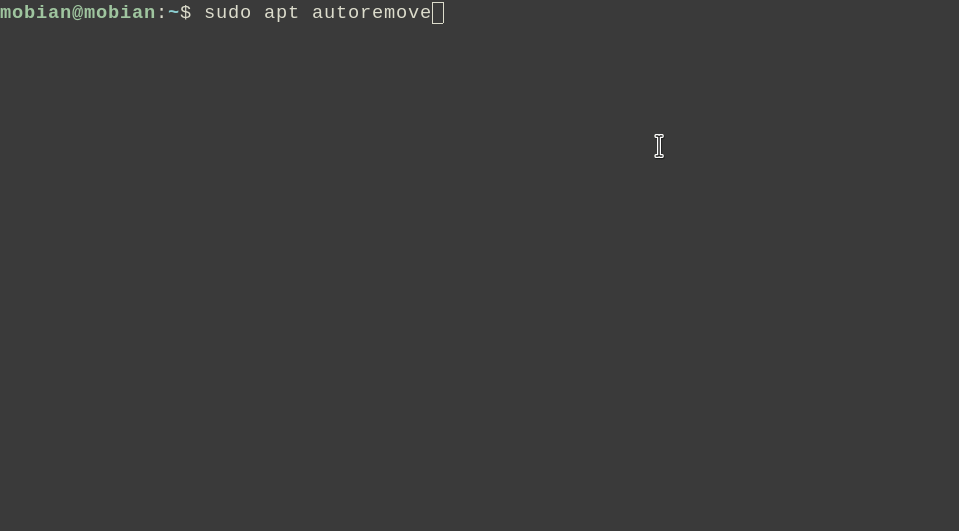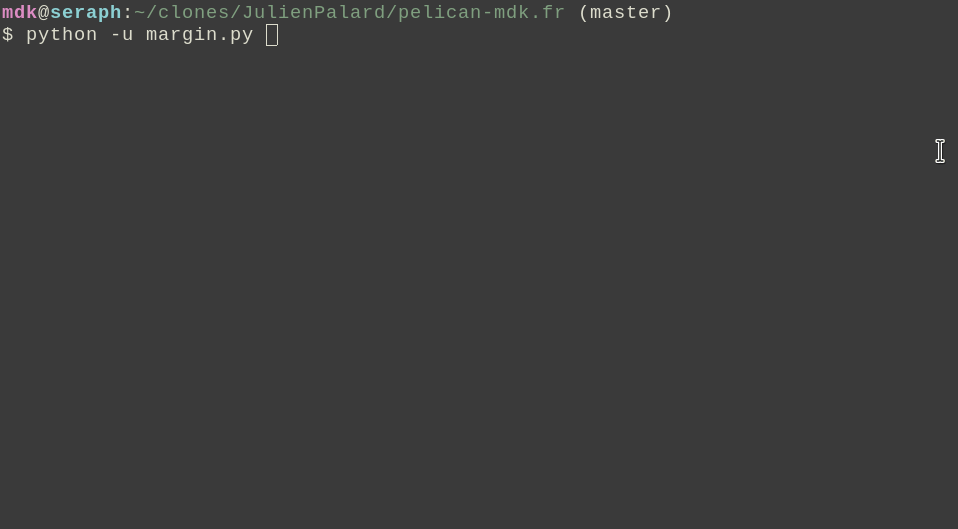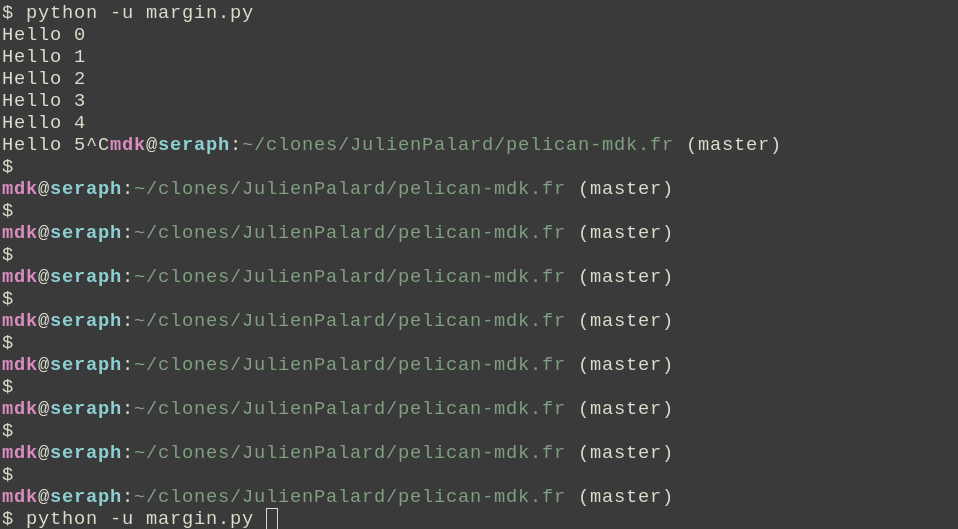How APT does its fancy progress bar
Posted on Wed 13 October 2021 in blog
Today while running an apt full-upgrade I asked myself how apt
does this nice progress bar stuck at the bottom line while still
writing scrolling text.
We needed no more with a coworker to try to reproduce it!

Fortunately, while being very bored in the tube a few years back, I wrote a Headless VT100 emulator, so I remembered some things and had a few hints on how it could be done, so I started poking around with some Python code.
I remembered a few instructions like DECSTBM to set the margins, and the various commands to move the cursor up and down so I started with this.
After some trials-and-errors bottom margin reservation and log
printing worked but the log were displayed on the line near the bottom
margin, not where the command started: notice you can run an apt
upgrade on the top of your terminal, it displays the progress bar at
the bottom, but the logs will start from the top, as if there were no
progress bar.
While trying to solve this with my coworker, we were discussing about my implementation, and looking at a random function:
static void DECSC(struct lw_terminal *term_emul)
{
/*TODO: Save graphic rendition and charset.*/
struct lw_terminal_vt100 *vt100;
vt100 = (struct lw_terminal_vt100 *)term_emul->user_data;
vt100->saved_x = vt100->x;
vt100->saved_y = vt100->y;
}
and soon we realized it was the missing piece! Saving the cursor position to restore it later!!
It soon started to look like an ugly undocumented, but almost working, ... thing?
print(f"\0337\033[0;{lines-1}r\0338")
try:
for i in range(250):
time.sleep(0.2)
print("Hello world", i)
print(
f"\0337\033[{lines};0f", datetime.now().isoformat(), "\0338", sep="", end=""
)
except KeyboardInterrupt:
pass
finally:
print(f"\0337\033[0;{lines}r\033[{lines};0f\033[0K\0338")
But wow, f"\0337\033[0;{lines}r\033[{lines};0f\033[0K\0338" should
really be made more readable, it start to hurt my eyes. I had to go
and let it as is for a night.
Today I'm back at it again, and tried to add some comments, and delay to actually see how it behave step by step:
import time
import os
from datetime import datetime
columns, lines = os.get_terminal_size()
def write(s):
print(s, end="")
time.sleep(1)
write("\n") # Ensure the last line is available.
write("\0337") # Save cursor position
write(f"\033[0;{lines-1}r") # Reserve the bottom line
write("\0338") # Restore the cursor position
write("\033[1A") # Move up one line
try:
for i in range(250):
time.sleep(0.2)
write(f"Hello {i}")
write("\0337") # Save cursor position
write(f"\033[{lines};0f") # Move cursor to the bottom margin
write(datetime.now().isoformat()) # Write the date
write("\0338") # Restore cursor position
write("\n")
except KeyboardInterrupt:
pass
finally:
write("\0337") # Save cursor position
write(f"\033[0;{lines}r") # Drop margin reservation
write(f"\033[{lines};0f") # Move the cursor to the bottom line
write("\033[0K") # Clean that line
write("\0338") # Restore cursor position
For the record here's what's used (\033 is ESC):
ESC 7is DECSC (Save Cursor)ESC 8is DECRC (Restore Cursor)ESC [ Pn ; Pn ris DECSTBM (Set Top and Bottom Margins)ESC [ Pn Ais CUU (Cursor Up)ESC [ Pn ; Pn fis HVP (Horizontal and Vertical Position)ESC [ Ps Kis EL (Erase In Line)
Don't forget the -u (unbuffered) Python flag if you want to see it step by step:

Started from the bottom so we see it scroll:

Notice how on interruption (or normal exit) it cleans the progress bar before exiting, restoring the cursor at the right place.
But hey, we could have read the apt code!
Yes, it was less challenging, but now that it works, we have to take a look at it!
So I apt-get source apt and found, in install-progress.cc:
// scroll down a bit to avoid visual glitch when the screen
// area shrinks by one row
std::cout << "\n";
// save cursor
std::cout << "\0337";
// set scroll region (this will place the cursor in the top left)
std::cout << "\033[0;" << std::to_string(nr_rows - 1) << "r";
// restore cursor but ensure its inside the scrolling area
std::cout << "\0338";
static const char *move_cursor_up = "\033[1A";
std::cout << move_cursor_up;
Already looks familiar to you?